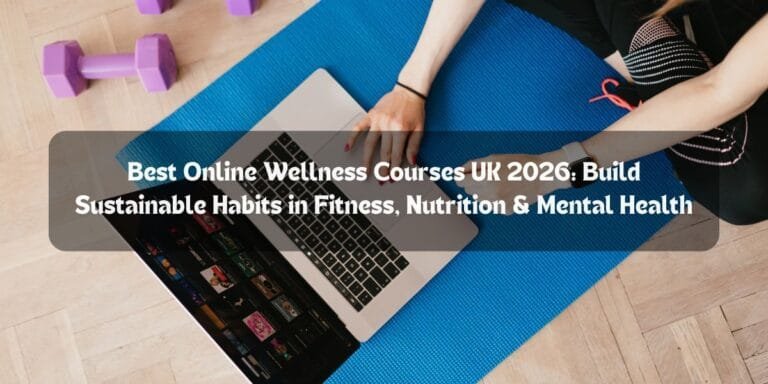

Introduction
Online learning offers a world of opportunities – but with thousands of courses available, how do you pick the one that truly aligns with your goals? The global online education market is booming (projected to exceed $500 billion globally), which means more options and more tough choices for learners. Choosing the right online course is essential to ensure your time and effort lead to the outcome you want, whether it’s a career change, a new skill, or personal enrichment. In this guide, we’ll walk through a step-by-step approach to finding an online course that fits your objectives and sets you up for success.
Define Your Learning Goals First
Before diving into course catalogs, start with clarity on your goals. Ask yourself what you want to achieve by taking an online course. Are you aiming to gain a certification for career advancement, learn a new technical skill, explore a hobby, or earn academic credit? Defining the end goal narrows your options to courses that serve that purpose. For example, if your goal is to transition into digital marketing, you might seek a comprehensive marketing certification rather than a generic business course. As Course Plus experts note, “when you define your goals and assess your level,” you set yourself on the path to success.Write down your primary objective and any secondary goals (like networking or portfolio-building) – this will act as your compass when evaluating courses. Align course type with your goal: Different goals call for different types of courses. If you want a career boost or high-paying job, look for accredited professional certificates or industry-recognized programs. If you’re learning for personal development or curiosity, a shorter, skills-focused course or even a free online course might suffice. Always ensure the course outcome (certificate, diploma, etc.) matches what’s needed for your goal – for instance, some careers may require an accredited certification or a certain number of learning hours.
Research the Course Content and Curriculum
Once you have a clear goal, research courses thoroughly to see if their content aligns with what you need to learn. Read the course description, syllabus, or curriculum outline. Look at module titles, topics covered, and the depth of material. Does it cover the specific skills or knowledge you’re seeking? For example, a data science course should ideally cover not just theory but also hands-on practice with tools (like Python or R) if your goal is to become a data analyst. Make sure the course is neither too basic nor too advanced for you – the content should build on what you already know and then extend your capabilities. Check the instructor’s credentials: A course is only as good as its instructor or creator. Research the instructor’s background – do they have expertise in the subject? Are they practitioners or academics with real-world experience? A quick search on the instructor’s name can reveal their qualifications, work history, or student feedback on their teaching. An experienced instructor can provide richer insights and practical tips that align with industry needs. Look for previews or sample lessons: Many online courses offer a free preview lesson or demo. Taking advantage of these can give you a feel for the teaching style, difficulty level, and whether the content engages you. If the platform provides a course syllabus or sample materials, review them to ensure the topics line up with your learning expectations. Remember, a well-structured course with a clear outline is a good sign that it has been thoughtfully designed with learners’ goals in mind.
Consider Accreditation, Credibility, and Reviews
Not all online courses are created equal. Course credibility is crucial, especially if your goal is career advancement. Courses from reputable universities or recognized platforms (like Coursera, edX, Course Plus, etc.) tend to be viewed favorably by employers. Check if the course is accredited or certified by an educational institution or professional body. An accredited course means the curriculum meets certain quality standards and could make your certification more valuable. For example, Course Plus partners with globally recognized institutions to deliver accredited certificates trusted by employers. Read student reviews and success stories: One of the best ways to gauge a course’s effectiveness is to see what past students say. Look for reviews on the platform or third-party sites. Did graduates achieve the outcomes they wanted? Positive feedback about how the course helped someone land a job or master a skill is a great indicator of quality. On the other hand, consistent complaints (e.g. outdated content or poor support) are red flags. If possible, also research student success stories related to the course or provider – real examples of lives changed (like those you’ll see in our next section on success stories) can validate that a course delivers on its promises. Examine the certificate value: If the course offers a certificate or diploma, investigate its value. Will it be recognized in your industry or by your target employers? Some fields, like IT, highly value specific certifications (e.g. a CompTIA Security+ for cybersecurity or a PMP for project management), while others may care more about the portfolio or practical skills you can demonstrate. Ensure that adding this course certificate to your CV will bolster your credibility (we’ll cover how to showcase certifications effectively in a later section). In short, choose courses with substance and recognition, not just easy trophies.
Match the Course to Your Schedule and Learning Style
Another critical factor is how well the course fits your life. Online courses range from self-paced modules to structured programs with set class times. Reflect on your learning style and schedule: Do you prefer learning at your own pace, or do you need the discipline of weekly live classes and deadlines? If you’re working full-time or balancing family commitments, a flexible self-paced course might be best so you can learn during off-hours. Ensure the course’s duration and time requirement are realistic for you – committing to a 12-week intensive bootcamp is very different from a 2-hour-per-week casual course. Check access to support: Consider what kind of support or interaction you might need. Some courses offer one-on-one mentorship, live instructor Q&A, or active discussion forums, while others might be purely video-based with minimal interaction. If you anticipate needing help with assignments or clarification of concepts, choose a course with a robust support system (instructor feedback, mentor guidance, or peer communities). Engaging with instructors and fellow students can greatly enrich your learning and keep you motivated, especially for longer programs. Evaluate the format (videos, readings, projects): Think about how you learn best. If you’re a hands-on learner, look for courses with practical projects, labs, or assignments that let you apply the knowledge. If you enjoy visual or auditory learning, video-based lectures with transcripts might suit you. Many quality courses blend formats – video lessons, readings, quizzes, and projects – to cater to different learning preferences. The key is to pick a course whose format will keep you engaged. For instance, if you know you struggle to stay focused in long lectures, choose a course that breaks content into short, interactive segments.
Evaluate Cost, Value, and Course Outcomes
Pricing for online courses can range from free to thousands of dollars. Consider your budget, but also weigh the value you’re getting. An inexpensive course might still cost you if it doesn’t deliver the needed knowledge, whereas investing in a pricier, comprehensive course could pay off by significantly advancing your skills or career prospects. Look beyond price to the outcomes: Does the course provide a certificate or credits? Job placement assistance? Portfolio projects you can showcase? These added values can make a course worth the investment. Many learners find that accredited certification courses (even if they cost more) yield a strong return in job opportunities and salary boost. If cost is a concern, check if there are financial aid or installment options. Some platforms provide scholarships, discounts, or monthly payment plans. Also, confirm if the course is one-time access or if you get lifetime access to materials – the latter is beneficial as you can revisit content or updates in the future. And remember, a higher price doesn’t always equal higher quality; use the earlier steps (content and reviews) to judge quality. Sometimes, you can find free or low-cost alternatives that are just as good – for example, open online courses from reputable universities – but be sure they meet your specific goals. Compare a few options: It’s wise to shortlist 2-3 courses that seem to fit your goals, then compare them side by side. Look at factors like length, depth, reputation, and support. Maybe one course is self-paced with 20 hours of content, another is an 8-week instructor-led program – which suits you better? By comparing, you might find one stands out as the ideal mix of quality and convenience. Don’t be afraid to spend a bit of time in this decision phase; choosing the right course upfront will save you from wasting time on the wrong one.
Conclusion: Make an Informed Choice (and Leverage Course Plus)
Choosing the right online course comes down to knowing your goals and doing a bit of homework on the options. Define what success looks like for you, research courses thoroughly, and pick the one that best aligns with your desired outcome, learning style, and schedule. When you invest in a course that matches your goals, you’re far more likely to stay motivated and complete it – and ultimately reap the benefits in your career or personal growth. Remember that online learning is an investment in yourself, so it’s worth taking the time to find that “perfect fit” course. If you’re unsure where to start, platforms like Course Plus offer a curated library of over 550 accredited courses across 12+ categories – providing plenty of options with trusted quality. The right course is out there for you. Once you’ve made your choice, commit to it, engage fully, and enjoy the journey of learning. By following these guidelines, you’ll be well on your way to achieving your goals through the power of online education.
Frequently asked Questions
What factors should I consider when choosing an online course?
Key factors include relevance to your goals, course content and curriculum, the instructor’s credibility, accreditation status, course format (self-paced vs. scheduled), time commitment, support available, cost, and reviews from past students. Make sure the course topics align with the skills or knowledge you want, and that the difficulty level is appropriate for you. It’s also important that the course comes from a reputable platform or institution so that any certificate earned will be respected by employers or academic programs. In short, choose a course that checks all the boxes: it teaches what you need, in a way you enjoy, and is backed by quality and credibility.
How can I tell if an online course is credible or legitimate?
To gauge credibility, research the provider and instructor. Look for courses offered by well-known e-learning platforms, accredited universities, or institutions with a track record. Check if the course provides an accredited certificate or is endorsed by industry organizations. The instructor’s qualifications are also telling – do they have relevant industry experience or academic credentials? Additionally, read reviews and testimonials from other learners: consistent positive outcomes (e.g. students landing jobs or clearly improving skills) indicate a legitimate, high-quality course. If available, statistics like how many people have taken or completed the course can hint at its popularity and trustworthiness. Avoid courses that make unrealistic promises (like “get rich quick” schemes) or lack transparency about content and credentials.
Should I choose a course that offers a certificate, or does it not matter?
It depends on your goals. If you’re taking a course purely for personal enrichment or to learn a hobby, a certificate might not matter at all – what counts is what you learn. However, if your goal is career-related (such as improving your CV or meeting job requirements), a certificate can be quite valuable. Certificates from recognized providers can validate your skills to employers and show that you completed a structured program. They demonstrate initiative and continuous learning, which many hiring managers appreciate
. That said, the substance behind the certificate is crucial – a certificate is only as good as the knowledge and skills you actually acquire. So, prioritize courses that not only offer a credential but also deliver robust training. When adding it to your CV, list the course name, provider, and completion date, and be prepared to discuss what you learned (see our later section on adding certifications to your resume for tips).
Courses Related To This Blog
Discover a range of carefully selected online courses crafted to enhance your skills across multiple topics. Engage with affordable, top-quality courses designed to provide in-depth learning and address your unique educational needs effectively.
Join the Community & Get Updates🔥
Related Post
Explore our latest expert insights, practical guides, and in-depth resources on trending topics designed to answer your questions, solve your challenges, and help you stay ahead with up-to-date trends and strategies.













